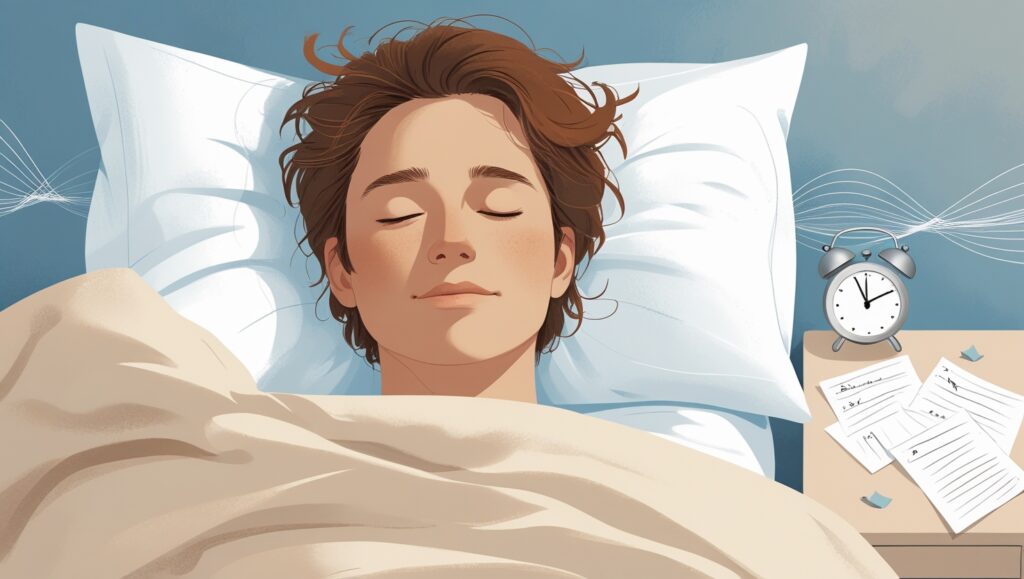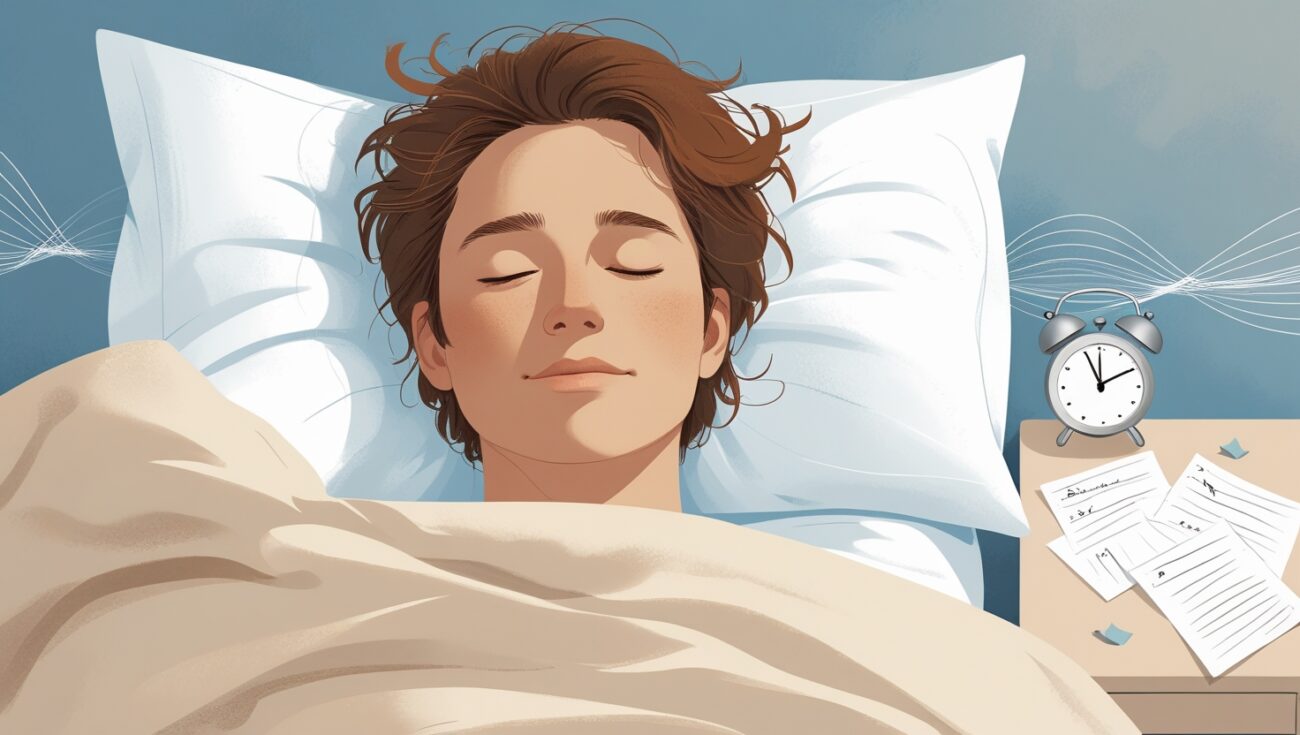Is Tinnitus Worse at Night? How to Sleep Better
When I first started dealing with tinnitus, one of the hardest things was trying to sleep. It always seemed like the ringing was louder and more distracting at night. I kept wondering:
“Why does my tinnitus get worse when everything is quiet?”
After going through this myself — and finding ways to manage it (with the help of Quietum Plus and some key sleep habits) — I wanted to share what I’ve learned about why tinnitus feels worse at night and how to actually sleep better.

Table of Contents
Why Tinnitus Feels Worse at Night
Here’s what I discovered:
✅ At night, external noise is low — your brain notices the ringing more
✅ Fatigue and stress can make nerves more sensitive
✅ Lying down can sometimes affect circulation, which may impact ear pressure
✅ Poor sleep makes tinnitus worse the next day — creating a vicious cycle
My Personal Experience
Before I started using Quietum Plus, I would toss and turn for hours — the ringing just seemed so loud in the quiet of night.
Once I added Quietum Plus daily — and changed my evening routine — I started falling asleep faster and waking up less during the night.
Tips That Helped Me Sleep Better
✅ Use a white noise machine — gentle background sounds really help
✅ Stick to a calming bedtime routine — stretch, read, meditate
✅ Avoid screens (phone, TV) at least 30-60 mins before bed
✅ Limit caffeine and alcohol
✅ Take Quietum Plus daily to calm nerves and improve circulation
Why Quietum Plus Helped My Sleep
Since I’ve been taking Quietum Plus every day, I’ve noticed:
✅ Fewer nighttime tinnitus spikes
✅ Deeper, more restful sleep
✅ Calmer nerves — I don’t “freak out” about the ringing like I used to
✅ Better circulation — which seems to reduce ear pressure
Final Thoughts
So — is tinnitus worse at night?
For many of us, absolutely. But the good news is, with the right support and habits, you can absolutely sleep better — and feel better the next day.
For me, Quietum Plus was the biggest game-changer. If you want to try what’s helped me so much, here’s where you can grab it:
Quietum Plus — Official Site
One of the first things I noticed when I started focusing on sleep — and taking Quietum Plus daily — was that my tinnitus wasn’t waking me up as often.
Before that, I would wake up at 2 or 3 AM and the ringing felt even louder — which made falling back asleep almost impossible.
I also realized that stress from the day made my nighttime tinnitus worse. Now I do 5-10 minutes of deep breathing or gentle stretching before bed.
Since taking Quietum Plus, my nerves are calmer and I don’t react as strongly to the ringing anymore — even if it’s there.
Another thing that helped — switching to warmer, dim lighting in the evenings. Bright lights made it harder for my body to wind down.
Now I also avoid caffeine after 1-2 PM — it really does affect sleep quality and made my tinnitus feel worse at night.
Since using Quietum Plus, I’ve noticed my overall sleep quality is better — I get more deep sleep and fewer restless nights.
I also use a white noise machine on a timer — so my brain has something soothing to focus on instead of the ringing.
Before, I was afraid of silence — now I know that gentle background sounds can really help train the brain to stop over-focusing on tinnitus.
I also stopped having screens in the bedroom — no phone scrolling, no late-night Netflix. My ears and brain thank me for it.
Since making these changes and adding Quietum Plus, I have way more good nights than bad ones now.
One other trick — I drink a small cup of herbal tea (like chamomile) in the evening — it helps with relaxation and pairs well with Quietum Plus.
Another thing I track — my tinnitus is usually worse on days when I skip my walk or don’t move much. Movement helps circulation and supports better ear health.
Since I started using Quietum Plus, even the occasional “loud night” doesn’t bother me as much — I bounce back faster the next day.
I also pay attention to what I eat for dinner — heavy, salty meals can sometimes make my ringing worse later at night.
It’s been such a relief knowing I can enjoy quiet evenings again — instead of dreading bedtime because of tinnitus.
If you’re struggling with nighttime tinnitus, don’t give up — adding Quietum Plus and making a few simple changes made all the difference for me.
If you want to give your ears and nerves the support they need, I highly recommend trying Quietum Plus — it’s worked wonders for me.
One of the most frustrating parts of tinnitus at night is how it plays with your mind. I used to lie in bed in total silence and hyper-focus on the ringing — which made it feel 10 times louder than during the day. My brain would get stuck in a loop, listening for the sound and worrying that I wouldn’t fall asleep. That mental spiral would keep me up for hours.
Since adding Quietum Plus to my routine, my whole nervous system feels calmer — which helps me stop fixating on the sound. I also trained myself to break that loop by using white noise, deep breathing, and focusing on relaxing other parts of my body instead of zeroing in on the ringing.
Another thing that really helped was building a consistent wind-down routine. Before, I’d be watching TV or scrolling on my phone late into the night, and then jump straight into bed — with my brain wide awake and the tinnitus front and center.
Now, I follow the same calm routine every evening: dim lights, no screens after 8 PM, a warm herbal tea, gentle stretches, and of course, my daily Quietum Plus. By the time I get into bed, my body knows it’s time to rest — and the ringing doesn’t bother me nearly as much anymore.
Those small changes, combined with the calming effects of Quietum Plus, made a huge difference in how quickly I can fall asleep.
One more thing I’ve realized over the past year — how important circulation is for calming tinnitus at night. There were nights when I’d notice the ringing was much louder after a day of sitting too much, eating poorly, or not moving my body.
Once I started focusing on daily walks and better hydration, plus using Quietum Plus to support circulation, I noticed my ears were much calmer at night. I’ve learned that the more I support my overall ear health, the less reactive my tinnitus becomes — especially during those quiet nighttime hours.
Finally, I’ll say this — there was a time when I dreaded going to bed because of my tinnitus. I thought I’d never enjoy quiet evenings again. But with consistent support — daily Quietum Plus, a better evening routine, managing stress and circulation — things have truly improved. I can now fall asleep peacefully most nights, and when I do wake up, I can drift back off much faster.
If you’re struggling the way I used to, please know there’s hope — and I highly recommend giving Quietum Plus a try. It’s made all the difference for me.

